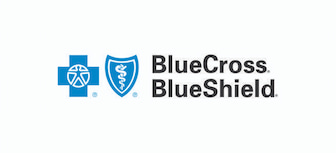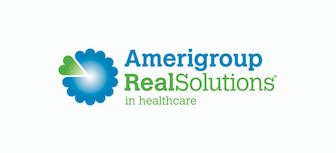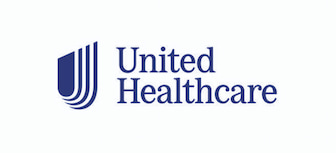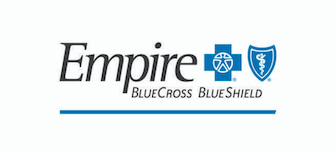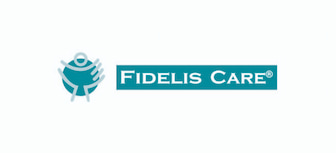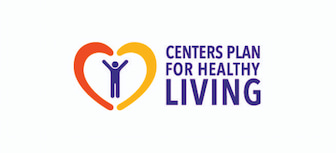What Is Primary Care?
Primary healthcare is at the heart of your health maintenance. Primary care doctors deliver timely, accessible healthcare for all your basic needs and the means to get more advanced care when needed. A primary care doctor in Midtown Manhattan prevents, diagnoses and manages your medical conditions through routine check-ups and annual physical exams.
Your primary care physician (PCP) provides:
- Care for basic healthcare needs, including treating colds and flus, as well as minor injuries
- Preventative screenings and vaccinations
- Management of chronic conditions, such as diabetes, high cholesterol and hypertension
- Coordination of specialist care, like to a dermatologist or gynecologist, through referrals
- Medical and lifestyle advice to reduce your risk factors for serious health scares like cardiovascular issues or liver damage
About 20 percent of Manhattan residents are 60 or older. Most rely on a PCP who knows their history and guides them as they age. Even if you’re young, find a suitable primary care doctor in Midtown Manhattan and book an appointment today to learn better health habits.
What Services Does My Primary Care Doctor in Midtown Manhattan Offer?
Your Midtown Manhattan primary care doctor offers preventative health services, including vaccinations, flu shots and blood tests. Your PCP monitors your medications and treatment plans.
Healthcare services include managing and diagnosing certain medical conditions, such as:
- Controllable allergies
- Digestive issues like acid reflux and irritable bowel syndrome
- Sinus infections and bronchitis
- Minor injuries, including cuts, breaks and burns
- Mild skin infections
- Sexually transmitted diseases and infections
- Chronic conditions like diabetes, high cholesterol or hypertension
- Headaches and migraines
- Mild anxiety and depression
Your primary care doctor in Midtown Manhattan also treats conditions like urinary tract infections. Their training helps them detect most medical issues. When necessary, you can get a quick referral to a specialist such as a urologist, dermatologist, gynecologist or cardiologist.
Visit your PCP to get common treatments like:
- Regular annual physical exams
- Counseling for diet and exercise
- Guidance to quit smoking
- Skin biopsies for moles or other growths
- Wound care, including stitches
What Education and Training Do Primary Care Doctors Need?
Primary care doctors have extensive education, training and experience. After earning a Bachelor’s Degree, these doctors-to-be take medical exams to be admitted to a medical school. Then they complete a four-year medical degree, gaining an MD or DO degree, which includes clinical rotations and medical science studies.
The process then includes:
- A three-to five-year residency program in their specialty for hands-on experience diagnosing and treating real patients
- The United States Medical Licensing Exam for MDs or the Comprehensive Osteopathic Medical Licensing Exam for DOs
- Board certifications in their chosen field through the American Board of Medical Specialties (ABMS)
To maintain board certification, primary care doctors attend seminars, conferences and short courses to stay up-to-date with the latest techniques and research. When you choose a PCP, remember that they may specialize in a particular type of medicine.
In Midtown Manhattan, primary care doctors specialize in specific fields, such as:
- Family medicine. These PCPs provide care for all ages, from infants to seniors. They address various medical issues for entire families.
- Internal medicine. Known as internists, these doctors focus on managing and treating issues for those in early adulthood through old age.
- Pediatric medicine. These physicians care for children’s development and growth, from birth through early adulthood.
- Gynecology. These doctors specialize in women’s health, including reproductive health, family planning, childbirth, prenatal care and menopause.
Additionally, nurse practitioners and physician’s assistants can act as primary care providers. While they’re not doctors, they’re trained to work with doctors to provide routine care. If you’re seeking a female primary care doctor, you can find one in this directory. Book an appointment today with your chosen primary care doctor in Midtown Manhattan.
Can I Make a Same-Day Appointment with a Primary Care Doctor in Midtown Manhattan?
Primary care practices in Midtown Manhattan provide same-day appointments through online booking and direct calls. Many primary care doctors also offer telemedicine consultations to serve you better.
If you think you may want same-day appointments when searching for a PCP, ask the practice:
- If walk-ins are allowed
- If they keep space in their schedule for same-day appointments
- Whether they take your specific Insurance policy
- What’s the normal wait time for an appointment
You may have specific criteria for selecting a primary care doctor. The possibility of same-day appointments may be one of them. Find out as much as you can about the doctor and the medical practice before you choose a Midtown Manhattan primary care doctor.
What Can I Expect During a Visit to a Primary Care Doctor in Midtown Manhattan?
The first time you visit your PCP, the practice asks you for your insurance card and some form of ID. You have to fill in a questionnaire about your medical history, current medications, any allergies, prior treatments and the symptoms you’re currently experiencing.
Then:
- A nurse takes your vital signs, including your blood pressure, weight, height, temperature and heartbeat.
- The PCP reviews your medical history and asks about your immediate family.
- The doctor performs a physical exam, paying attention to the areas you’ve complained about.
- You may need diagnostic testing, such as an x-ray, Pap smear or blood test.
- After confirming the diagnosis, your doctor discusses treatment options.
During your consultation, be honest and complete about your physical ailments. The more information you provide, the more targeted your treatment.
Ask plenty of questions during this consultation, such as:
- What causes my symptoms?
- What’s the best treatment option for me?
- Are there side effects from the treatment?
- How many follow-ups do I need?
How Can I Choose the Best Primary Care Doctor in Midtown Manhattan?
First, look for a primary care doctor near your home or office. Verify the doctor’s credentials, including a board certification and relevant experience. Make sure the doctor speaks your preferred language. Then book an appointment.
During your consultation, consider the:
- Listening skills of the doctor
- Clarity in the doctor’s communication style
- Empathy skills of the doctor
- Comfort you feel in the doctor’s presence
Evaluate whether you may need specific services from your doctor. For example, you can choose an internist, pediatrician or a gynecologist as your PCP. If you ever require the services of a specialist, your Midtown Manhattan primary care doctor refers you to one within your insurance network.
What Doesn’t Primary Healthcare Cover?
Primary care doctors lack the expertise to manage advanced conditions like heart conditions, cancer treatments and brain trauma. While your PCP can order blood tests and imaging, you may need a specialist to perform advanced diagnostic procedures, including reading MRIs or biopsies.
Other limitations of primary care doctors include:
- Treating some medical emergencies
- Seizures or life-threatening situations
- Major surgeries like open surgeries
- Mental health conditions like schizophrenia
Primary care doctors are trained to treat most general medical issues. Due to their busy schedules, these professionals don’t often have time to examine you for every condition. They lack the specialized tools and equipment needed for advanced procedures. As a result, the best primary care doctors in Midtown Manhattan focus on routine care, which is the starting point for caring for your health. Make an appointment with your PCP today.


 My BestDoc
My BestDoc
 Future Appointments
Future Appointments
 Settings
Settings
 Sign out
Sign out


